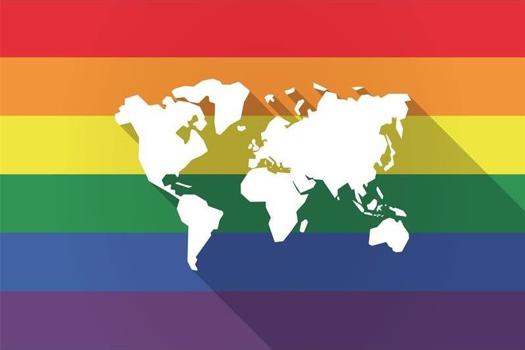Business travel is widely expected to grow over the next 12 months, and with it the need to protect employees. The potential human impact of rising geopolitical and environmental instability has sharpened the focus on the moral and legal obligations of businesses to ensure the safety of their workforce while overseas.
Consider an occasion where an employee is sent to a country in which their sexual orientation or identity is deemed illegal. Dealing with the ramifications can prove challenging for a business. There are, however, steps that can be taken to help companies ensure employees stay on the right side of the law and (more importantly) remain safe.
Awareness and assistance
According to Stonewall 72 countries, including increasingly popular business destinations across Africa, Asia and the Middle East, still criminalise same-sex relationships. It’s important, therefore, that LGBT+ employees are made aware of any threats that may exist before travelling to one of these countries.
Prior to any trip LGBT+ employees that have disclosed their sexual orientation or gender identity should be fully briefed on the viewpoint of the country they’re visiting, and on the processes that must be followed should they find themselves in a difficult situation.
While abroad employees should be encouraged to use app-based booking tools such as Uber to provide as much visibility as possible on their whereabouts. By consolidating data from these apps, as well as from HR profiles and location check-ins, organisations will have the insight they need to support each of their employees. Staff should feel assured that, by monitoring their movements in this way, their organisation will know where they are if they ever find themselves in need of assistance.
Encouraging employees to use a variety of communication platforms while away and checking in regularly is also important. This way they will have multiple channels to choose from should they feel threatened or unsafe.
Confidentiality and assurance
Implementing strong company-wide diversity and inclusion policies is essential to ensuring a thorough duty of care for all employees. The Equality Act 2010 offers legal protection against all forms of discrimination in the workplace, and last year the government published its LGBT Action Plan 2018.
Despite such recent advances, however, not everyone feels confident their rights will be respected. Some people may not wish to disclose their orientation to their employer, but this can make it difficult to discuss any concerns they may have around travelling to certain destinations abroad. To address this, businesses should consider implementing an LGBT+ network or advocate that employees can approach – in absolute confidence – for advice and guidance rather than having to discuss the matter directly with their line manager.
Employees may also be concerned that turning down trips to countries with less than liberal attitudes may affect their career prospects and their standing within the company. It’s imperative, therefore, that HR teams allay such fears, offering complete assurance that any employees who do so will be fully supported in their decision.
As business travel becomes increasingly popular organisations have an ever greater duty of care for their greatest assets – their employees. Attitudes and policies around diversity and inclusion must be shared across the entire company; they should emphasise an acute awareness of different laws and cultures and how these might affect anyone required to travel abroad.
Ultimately, while companies become increasingly mindful of the importance of meeting the needs and rights of employees in an ever-changing world, protecting their safety remains paramount.
Jenn McColly is vice president of employee experience at SAP Concur









